 Last updated: August 19th, 2024
Last updated: August 19th, 2024
Quick Fixes for Air Conditioner Leaks: A Comprehensive Guide
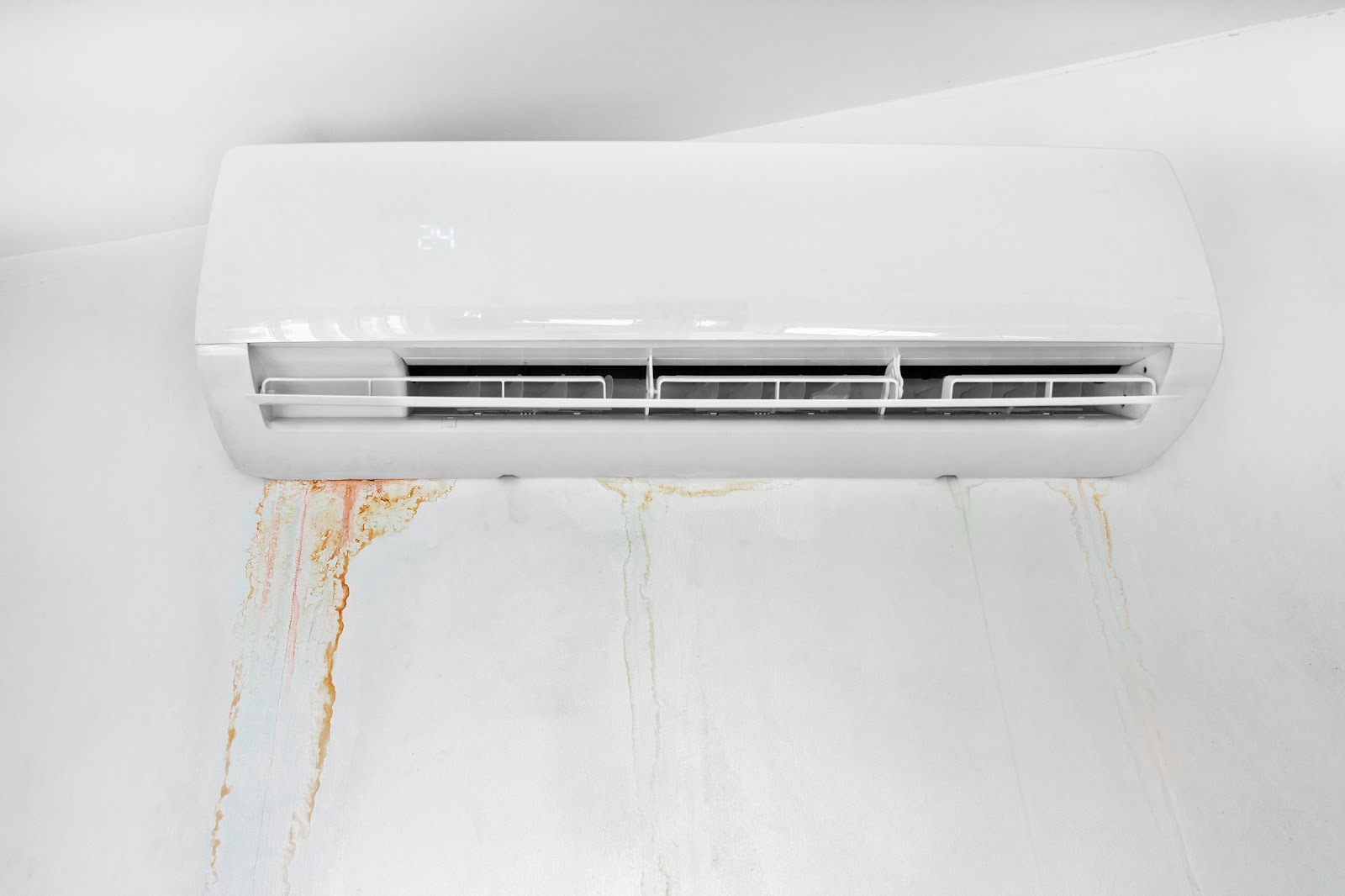
Air conditioner leaks can be a nuisance, affecting the efficiency of your cooling system and potentially damaging your home. Identifying and addressing these leaks promptly is crucial to maintaining the performance and longevity of your air conditioning unit. This article covers the common causes of air conditioner leaks, DIY quick fixes, and when to call a professional.
5 Common Causes of Air Conditioner Leaks
Here’s why your Air Conditioner may be leaking.
-
Clogged Condensate Drain Line
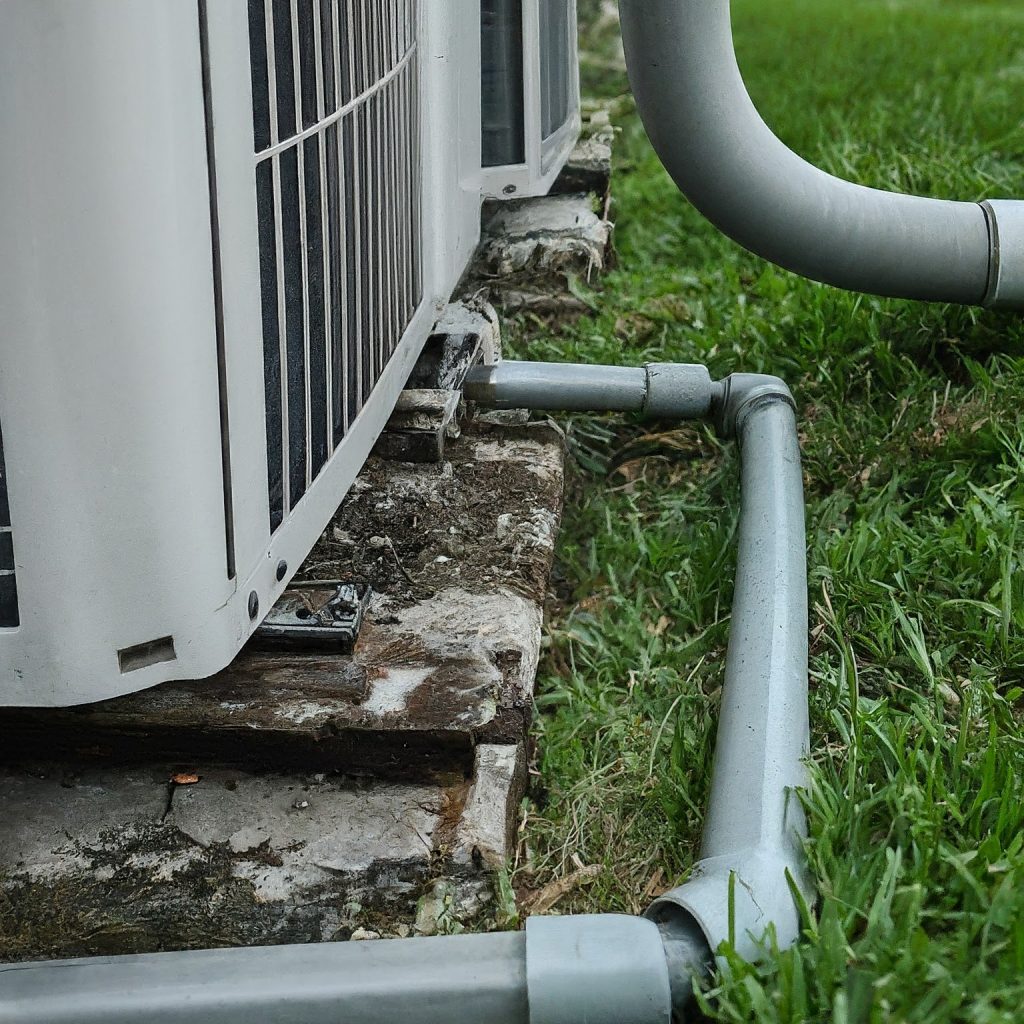
- Problem: Over time, dust, dirt, and algae can clog the air conditioner drain line, causing water to back up and leak.
- Solution: Regular cleaning of the drain line can prevent blockages.
-
Dirty Air Filter
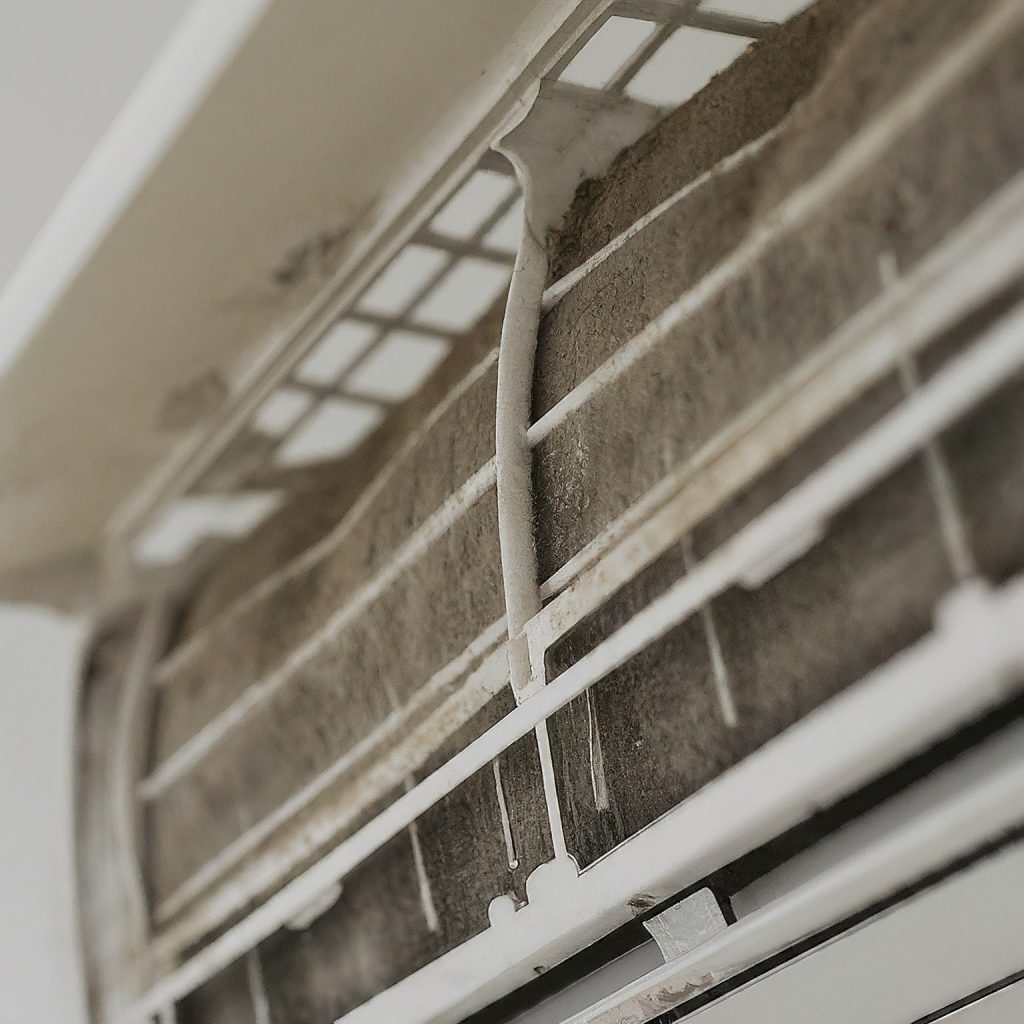
- Problem: A dirty air filter restricts airflow, causing the evaporator coil to freeze. When it melts, water can overflow the drain pan.
- Solution: Replace or clean the air filter regularly.
-
Low Refrigerant Levels
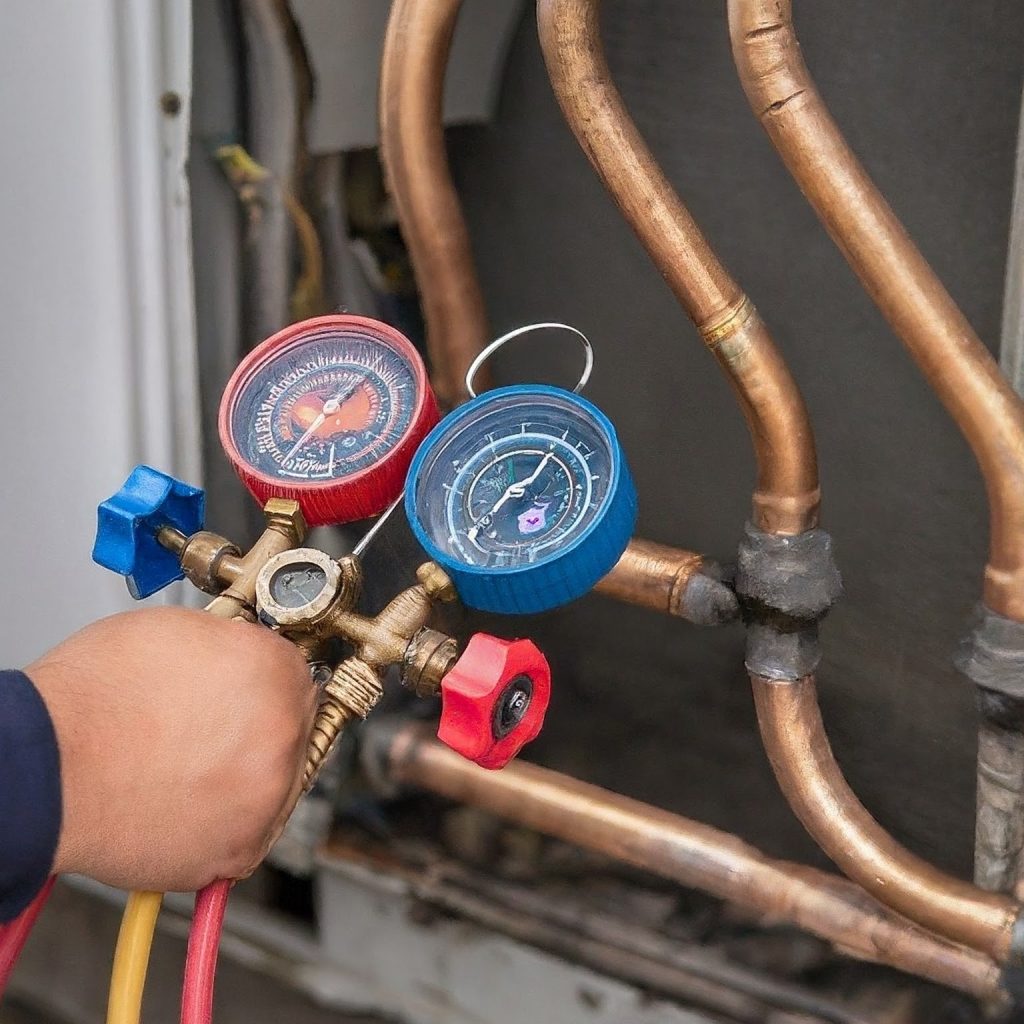
- Problem: Low refrigerant levels can cause the evaporator coil to freeze and eventually leak water when it melts.
- Solution: Check for refrigerant leaks and recharge the system as needed.
-
Damaged or Rusted Drain Pan
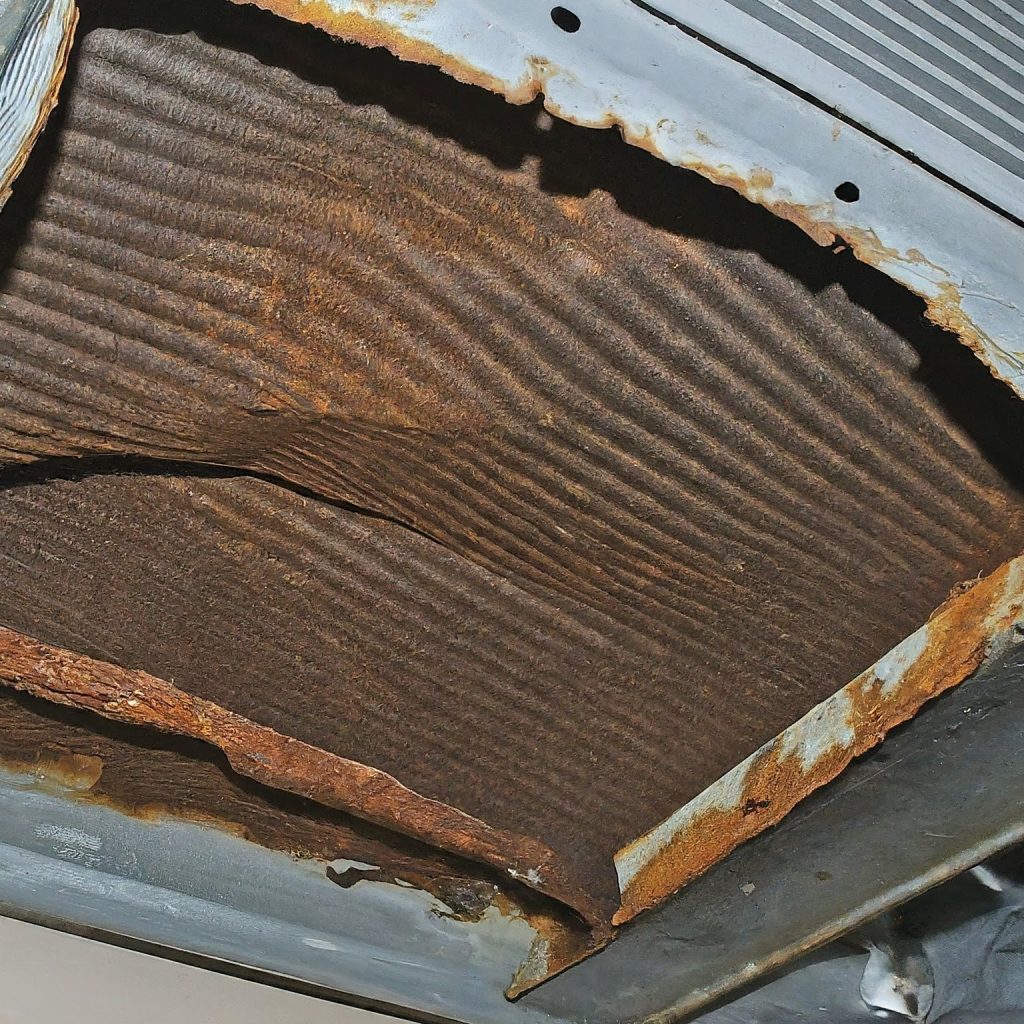
- Problem: Over time, the drain pan can become damaged or rusted, leading to leaks.
- Solution: Replace the damaged drain pan.
-
Improper Installation
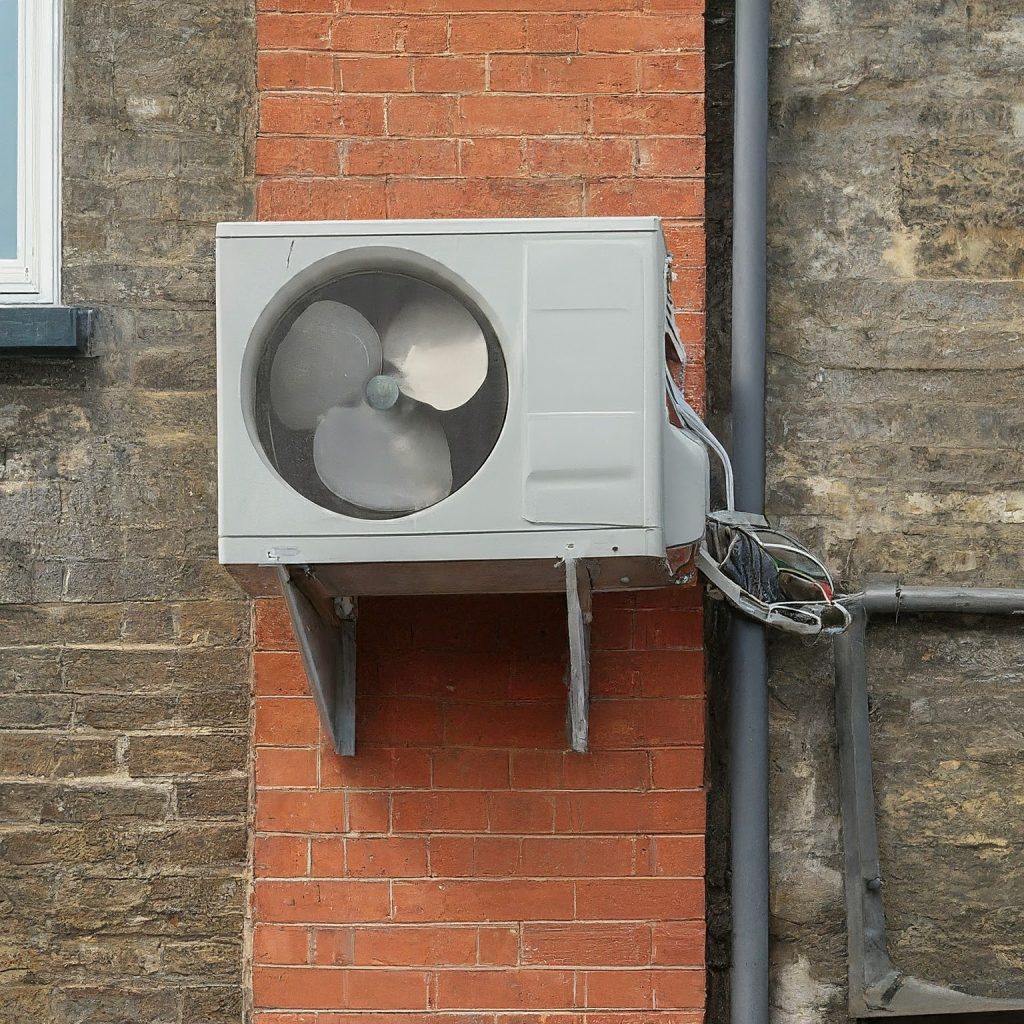
- Problem: Incorrect installation can lead to improper drainage and leaks.
- Solution: Ensure the unit is installed correctly and has proper slope and drainage.
DIY Quick Fixes for Air Conditioner Leaks
We have listed some DIY hacks you can perform to fix your system. Take a look:
Tools and Materials Needed
Before performing the DIY fixes, make sure you have the following tools:
- Wet/Dry Vacuum: This cleans the condensate drain line.
- Pipe Brush: This is for scrubbing the drain line.
- Replacement Air Filters: This is for regular filter replacement.
- Fin Comb: This is for straightening bent fins on the evaporator coil.
- Level: To check the installation slope of the unit.
- Drain Pan: Replacement, if needed.
- Bleach or Vinegar: This cleans the drain line and prevents algae growth.
Step-by-Step Guide
- Unclog the Condensate Drain Line
- Turn Off the AC: Switch off the air conditioner and locate the drain line.
- Attach Wet/Dry Vacuum: Connect the vacuum to the end of the drain line outside the house.
- Seal and Vacuum: Create a tight seal around the hose and vacuum for a few minutes to remove the blockage.
- Clean with Bleach or Vinegar: To prevent future clogs, pour one part bleach or vinegar and one part water into the drain line.
- Replace or Clean the Air Filter
- Locate the Air Filter: Turn off the unit and find the air filter, typically located near the return air duct.
- Remove and Inspect: Take out the filter and inspect it for dirt and debris.
- Replace or Clean: Replace it with a new filter or clean it if it’s reusable.
- Check for Low Refrigerant Levels
- Inspect for Leaks: Look for signs of refrigerant leaks, such as oily line residue.
- Recharge the System: If you suspect a leak, contact a professional to repair the leak and recharge the refrigerant.
- Inspect and Replace the Drain Pan
- Turn Off the AC: Ensure the unit is off and locate the drain pan.
- Inspect for Damage: Check the pan for cracks or rust.
- Replace if Needed: If the pan is damaged, replace it with a new one.
- Check Installation and Unit Level
-
- Turn Off the AC: Turn off the air conditioner and locate the unit.
- Use a Level: Place a level on top of the unit to check for proper slope.
- Adjust as Needed: Adjust the unit to ensure it slopes slightly towards the drain line for proper drainage.
When to Call a Professional
While many air conditioner leaks can be fixed with DIY methods, some situations require professional expertise:
- Persistent Leaks: If leaks persist despite your efforts, it’s time to call a professional.
- Refrigerant Issues: Handling refrigerants requires specialized knowledge and certification.
- Major Repairs: A licensed HVAC technician should address significant damage to the unit or complex issues.
How a Home Warranty Can Help with Air Conditioner Leaks
A home warranty is a service contract that covers the repair or replacement of major home systems and appliances that break down due to normal wear and tear. Similarly, it can provide peace of mind by covering the cost of repairs or replacements for your refrigerator, including those pesky leaks.
Benefits of a Home Warranty for Air Conditioner Leaks
- Cost Savings: Home warranties can save you money by covering the cost of repairs or replacements, which can be expensive without coverage.
- Convenience: With a home warranty, you can access a network of qualified technicians who can quickly address the issue.
- Peace of Mind: Knowing that your Air Conditioner and other appliances are covered can reduce stress and worry about unexpected breakdowns.
How to Choose the Right Home Warranty for Your Needs
When selecting a home warranty for Air Conditioner coverage, consider the following factors:
- Coverage: Ensure the plan covers all potential issues, including refrigerant leaks and key components like the compressor and evaporator coil.
- Cost: Compare the monthly premiums and service call fees to determine cost-effectiveness.
- Customer Service: Look for companies with 24/7 customer service and positive reviews for prompt and reliable service.
- Additional Benefits: Some companies offer free roof leak coverage or extended repair warranties.
Top 3 Home Warranty Companies Offering Air Conditioner Coverage
When choosing a home warranty, comparing the coverage options, costs, and customer service of different providers is essential. Below is a comparison of the top three home warranty companies that offer Air Conditioner coverage, including refrigerant leaks.
|
Company |
Coverage Details |
Cost |
Customer Service |
|
All parts and components of your AC+ $10 per pound per occurrence for refrigerant |
$29-$70/month |
24/7 customer service, a large network of qualified technicians |
|
|
All parts and components of your AC |
$46-$55/month |
24/7 customer service, 90-day repair guarantee |
|
|
All parts and components of your AC |
$44-$47/month |
24/7 customer service, free roof leak coverage |
Note: Pricing may vary, depending on your location. We encourage you to get a free quote to learn the exact premiums.
Maintenance Tips to Prevent Leaks
Here are a few things you can do to ensure your system works smoothly in the long run.
– Regularly Clean the Drain Line
The drain line in your air conditioning unit is crucial in removing condensation from the system. Over time, the drain line can become clogged with dirt, debris, and algae, leading to water backups and leaks. Here’s how you can maintain a clear drain line:
- Use a Wet/Dry Vacuum: Attach a wet/dry vacuum to the drain line’s outlet to suck out any blockages. This method is effective in removing large debris and preventing buildup.
- Bleach Solution: Periodically, pour a solution of one part bleach and three parts water into the drain line. This helps to kill algae and prevent mold growth, keeping the line clear and free-flowing.
- Regular Inspection: Check the drain line for any signs of blockage or damage. If you notice any issues, address them immediately to prevent leaks.
– Replace Air Filters Monthly
Air filters play a vital role in maintaining the air quality in your home and ensuring the efficient operation of your air conditioning system. Dirty or clogged filters can restrict airflow, causing the system to work harder and potentially leading to leaks. Follow these tips to maintain your air filters:
- Monthly Replacement: During peak usage seasons, such as summer and winter, replace or clean your air filters every month. This ensures optimal airflow and reduces the strain on your system.
- Choose the Right Filter: Use the filter your system’s manufacturer recommended. Different systems require different types of filters, and using the wrong one can affect performance.
- Regular Checks: Even if it’s not peak season, check your air filters regularly. If they appear dirty or clogged, replace them immediately.
– Schedule Annual Inspections
Professional maintenance is key to preventing leaks and ensuring the longevity of your HVAC system. Schedule an annual inspection with a certified HVAC technician who can perform the following tasks:
- Thorough System Check: The technician will inspect all components of your HVAC system, including the compressor, evaporator coils, and refrigerant lines, to ensure everything is functioning correctly.
- Leak Detection: Professionals use specialized tools to detect leaks in the refrigerant lines and other system parts. Early detection can prevent small issues from becoming major problems.
- System Cleaning and Maintenance: The technician will clean critical components, such as coils and fans, and perform necessary maintenance tasks to keep the system running efficiently.
- Performance Assessment: The inspection includes checking the system’s overall performance, ensuring it operates at peak efficiency and doesn’t put undue strain on any components.
– Monitor Refrigerant Levels
Refrigerant is essential for the cooling process in your HVAC system. Low refrigerant levels can cause the system to work harder, leading to increased wear and tear and potential leaks. Here’s how to keep your refrigerant levels in check:
- Regular Checks: Monitor your system’s refrigerant levels, especially during peak usage seasons. If you notice a drop in refrigerant levels, it could indicate a leak.
- Professional Service: If you suspect a refrigerant leak, immediately contact a professional HVAC technician. Locating and repairing refrigerant leaks requires specialized tools and expertise.
- Recharge When Needed: Ensure your system is recharged with the correct type and amount of refrigerant. Overcharging or undercharging can both cause issues and reduce efficiency.
- Inspect Connections: Regularly inspect the refrigerant lines and connections for any signs of wear or damage. Replace any worn-out components to prevent leaks.
These proactive steps not only prevent leaks but also extend the life of your HVAC system, providing you with reliable comfort throughout the year.
Conclusion
If not addressed promptly, air conditioner leaks can lead to inefficiency, increased energy bills, and potential water damage. By understanding common causes and applying these DIY fixes, you can keep your air conditioning system running smoothly and efficiently.
Regular maintenance and timely professional intervention, when needed, will help ensure your home remains comfortable and cool throughout the hot months. Prioritize these tasks to extend the life of your air conditioner and maintain a pleasant indoor environment.
related articles
 Discover First American Home Warranty Locations and What You Need to Know About Their Cover.
Discover First American Home Warranty Locations and What You Need to Know About Their Cover.
 Reviews of Home Warranty Companies Show You How to Determine If Your Home Is Covered
Reviews of Home Warranty Companies Show You How to Determine If Your Home Is Covered











